Apprenticeships offer a great pathway for individuals to gain essential skills and for organisations to cultivate a talented workforce. However, despite the many benefits of apprenticeships, organisations still face common challenges with set-up and delivery. In this article, we speak to Barry Smith, Head of Assessment and Skills at NSAR, to find out about the different types of apprenticeship support NSAR can provide to organisations.
The awareness gap
One of the biggest issues facing organisations is a lack of awareness of the many different apprenticeships available.
Barry explains, “Currently, there are over 700 different apprenticeships. Employers can’t be expected to stay informed about policy changes, educational reforms and the diversity of available apprenticeships.
“The value NSAR offers to our clients lies in our knowledge of the range of apprenticeships and understanding of how to leverage opportunities presented by various government policies. We can piece together customised solutions for organisations, saving employers time and effort.”
To begin with, NSAR can help organisations understand the apprenticeship landscape and which apprenticeship programmes might best fill workforce gaps.
“Some organisations have preconceived notions about apprenticeships due to their past experiences, often limited to roles like customer service or office administration. This can hinder their understanding of the potential of apprenticeships.
“There are also organisations that have in-depth knowledge but limited to specific apprenticeships, such as rail engineering or train driver apprenticeships. We encourage them to explore a broader range of apprenticeships for their whole organisation.”
Levy optimisation and assessments
NSAR can assist organisations in understanding and optimising their apprenticeship levy utilisation. Resource plans are created – for any level of apprenticeship over any number of years – which enable NSAR to advise on how to optimise levy use. For large businesses, NSAR offers an apprenticeship levy calculator for easy adaption and optimisation of levy contribution.
Small businesses are entitled to 95% of apprenticeship funding, with only a 5% contribution required, even if they are not levy payers. NSAR can also explore options for smaller employers to receive levy transfers from larger companies to cover the 5% if needed.
NSAR can also help navigate endpoint assessments. “Because NSAR was the external quality assurer of endpoint assessment for apprenticeships, we have expertise in the gateway process, the endpoint assessment process and in preparing your candidates for assessment.”
Removing barriers to apprenticeships
NSAR’s Skills Match and Apprenticeship Agency services offer more comprehensive support.
Skills Match aims to remove barriers to apprentice recruitment by helping employers identify their apprenticeship needs, create cohorts of individuals and match them with the right training and education providers.
Barry explains, “That process starts with conversations with training providers about capability and conversations with employers about workforce needs. NSAR brings those conversations together to come up with a workforce strategy and apprenticeship training solutions.
“Skills Match aims to develop capacity and improve the supply of apprenticeships, with a focus on a wide range of apprenticeships. We encourage organisations to talk to us about their entire workforce needs, even if they are outside the traditional rail apprenticeship areas.”
For organisations who are thinking about apprenticeships but unsure about the risk of taking on an apprentice, NSAR’s Apprenticeship Agency service will be of interest. NSAR will employ apprentices and arrange placements with host organisations for the duration of an apprenticeship. This will de-risk apprenticeship provision for organisations, who can take on apprentices knowing that NSAR can place them elsewhere if there is insufficient work.
The Skills Match and Apprenticeship Agency services share a common goal – supporting employers to take on apprentices – but cater to different needs. For both services, Barry explains, “NSAR is looking at regions and sectors with priority needs, often driven by infrastructure investments, but the approach is flexible, taking into account geographic and skills needs and social inclusion aspects. It’s about finding the sweet spots where these factors align.
“And because there are more hybrid and online models of learning, we can build national cohorts for a training provider that has that national reach because of their use of technology.”
Support for organisations of all sizes
NSAR’s apprenticeship services cater to organisations of all sizes. While large organisations may have established apprenticeship programmes, they “can benefit from a stress test of their existing strategies,” Barry says. “We challenge them to optimise their use of apprenticeships and offer continuous improvement support.”
Skills Match and Apprenticeship Agency services cater specifically for small businesses. Skills Match builds cohorts of apprentices that training providers can offer a course for. If small businesses have concerns about providing sufficient training throughout an apprentice’s entire program, NSAR can address this concern by employing them as an apprentice and finding an alternative placement if issues arise.
Focusing on the medium-term
Barry concludes, “The ability to grow your own workforce through apprenticeships can help businesses of all sizes address wage inflation and find the right staff.
“It’s essential to remember that apprenticeships are a medium-term solution. They transform individuals into competent, skilled professionals. So, businesses need to focus on medium-term strategies, incorporating apprenticeships into their workforce capacity and talent management plans.”
Interested in NSAR’s apprenticeship support? Speak to us today.

